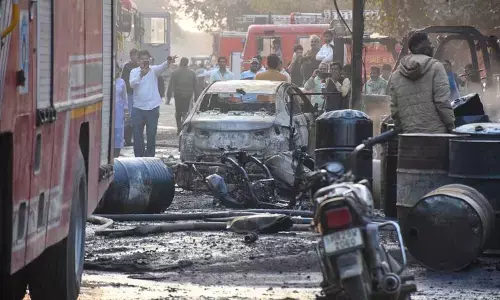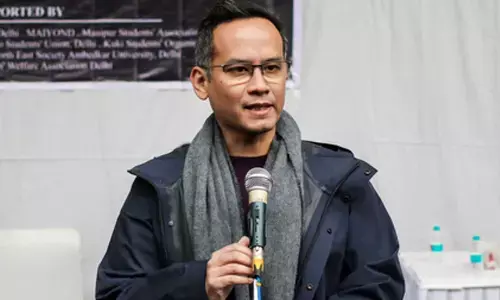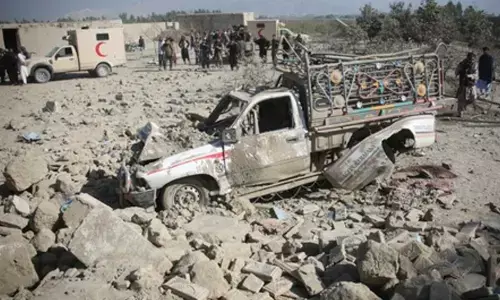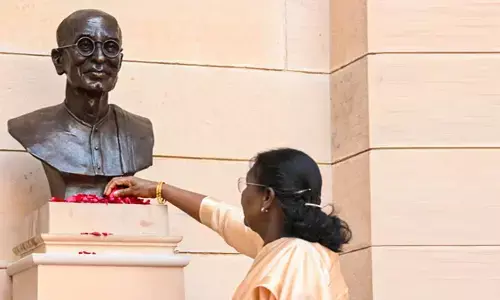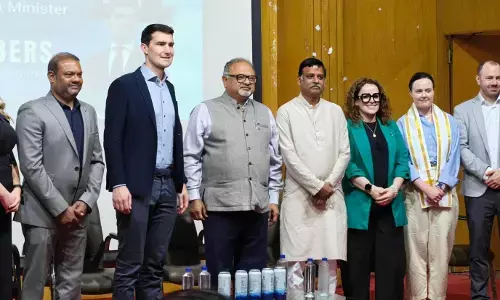NaMo Speak & Manmohanimcs

Chanchal Chauhan: NaMo Speak & Manmohanimcs, Prime Minister Narendra Modi had promised development of all and better days for all. It was on this plank he was voted to power.
Prime Minister Narendra Modi had promised development of all and better days for all. It was on this plank he was voted to power. But just after three weeks of swearing-in, he gives clear hints of the moves that don’t augur well. On Saturday last, while addressing the Sangh cadres he talked of ‘tough decisions’ to improve the financial health of the country, which he knows may not go down well with some sections. Thus as usual, he attacked the previous Manmohan Singh-led UPA Government’s way of handling the economy.

People should know that former PM Manmohan Singh had spoken the same language way back in September 2012, three years after being sworn in as the PM of the UPA-II Government, 2009. NaMo is also invoking the same ‘national interest’ Singh had spoken of. “We have much to do to protect the interests of our nation and we must do it now...The time has come for hard decisions,” he says. Clearly, Modi has stolen the same words of Singh, who also said that “for this, I need your trust, your understanding and your cooperation.” An extra phrase that was bitterly criticised by BJP leaders at that time was: “Money doesn’t grow on trees.”
The above is a clear indication that the present Government will brazenly implement all those measures to pass on the burden of the economic crisis on to the ‘aam admi’, who voted it into power on the promise of better days and prosperous future for them and their children.
Recall, the UPA government made mockery of poverty fixing, the ludicrous scale of measuring it at Rs 32 a day in urban areas or Rs 26 in villages. Under the charge of Montek Singh Ahluwalia, the Planning Commission told the Supreme Court then that “anyone spending over Rs 965 per month in urban India and Rs 781 in rural India would be deemed not to be poor.” Updating the poverty line cut-off figures, the Commission had said that those spending in excess of Rs 32 a day in urban areas or Rs 26 a day in villages would no longer be eligible to draw benefits of Central and State government welfare schemes meant for those living below the poverty line.
The Modi Government in Gujarat had gone a step further. According to a 2013 circular, it said “only those with daily earning of less then Rs 10.80 would be eligible for a subsidised food grain scheme meant for the poor.” Then Modi took the plea that his government was following the Commission’s instructions.
Indeed, the economic advisory apparatus of the international finance capital is well entrenched in the administration even now with Ahluwalia’s steps before his exit along with Singh. Just like Singh, he too had worked with the World Bank where he started his career as an YP (Young Personnel) in 1968. He had introduced the concept in the Planning Commission in 2009 and rigorously implemented the neo-liberal policies. Now, Modi has indicated that he will follow the same path in the name of ‘national interest’ as Singh, Ahluwalia and RBI Governor (who also served in the WB) did under UPA-II regime.
Any sensible person can foresee that the present regime too will bring ‘better days’ for the big corporate world and the ‘aam admi’ will continue to suffer. The process has already begun. Prices of all essential commodities including vegetables and onion are increasing every day. A steep hike in diesel and gas prices is on the anvil and may be declared anytime now. The hike in oil leads to the increase in transportation charges and the spiral increase in all commodities becomes the order of the day. The pretext of a war or killing of military personnel in Iraq or Syria is being adopted to hoodwink people.
So far, the Government hasn’t taken any new initiative to offer better days. The big corporate houses are raking it in, by getting finance capital from all sources, including the IMF and the World Bank. They reap the benefits while the debt burden is borne by the common man. Thus, India’s burden of foreign debt has been increasing under these regimes; that is why they are compelled to surrender national interest and work for the benefit of the big corporate houses that are beneficiaries of the IMF and the World Bank.
Unfortunately, financial institutions dictate the economic policies, whosoever may be at the helm of affairs and whatever promises may be made at elections. No wonder, the PM and new FM have begun to talk in the same language as earlier PM and FMs. Till now, nothing concrete has evolved that may show that ‘the better days have really come’. Some may say it’s too early but let’s wait and watch.


